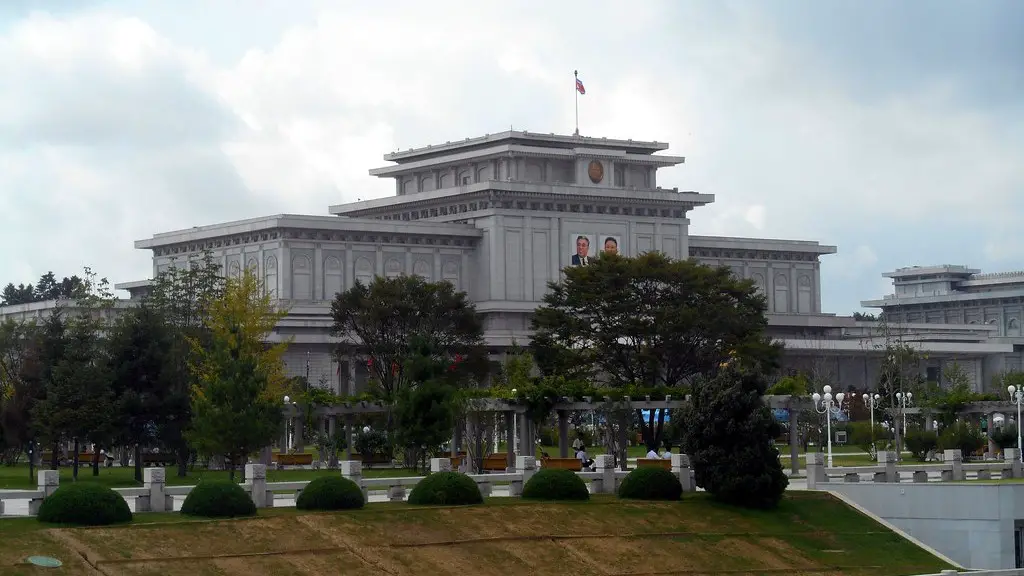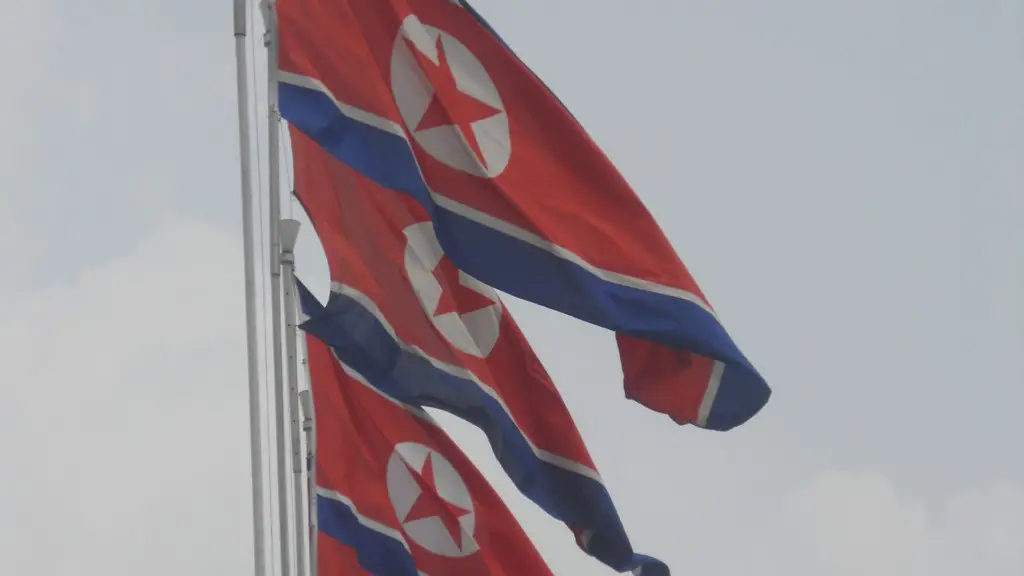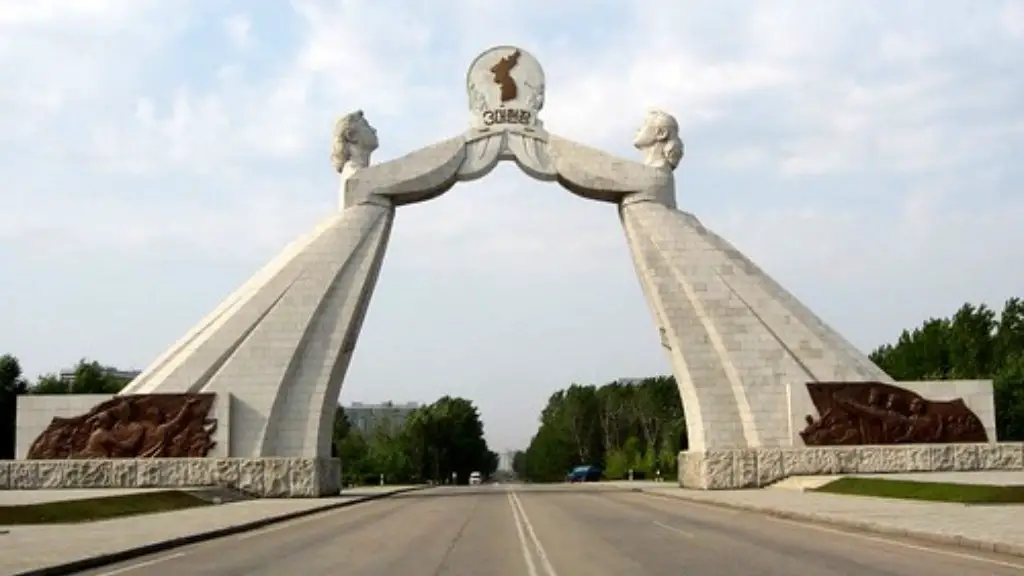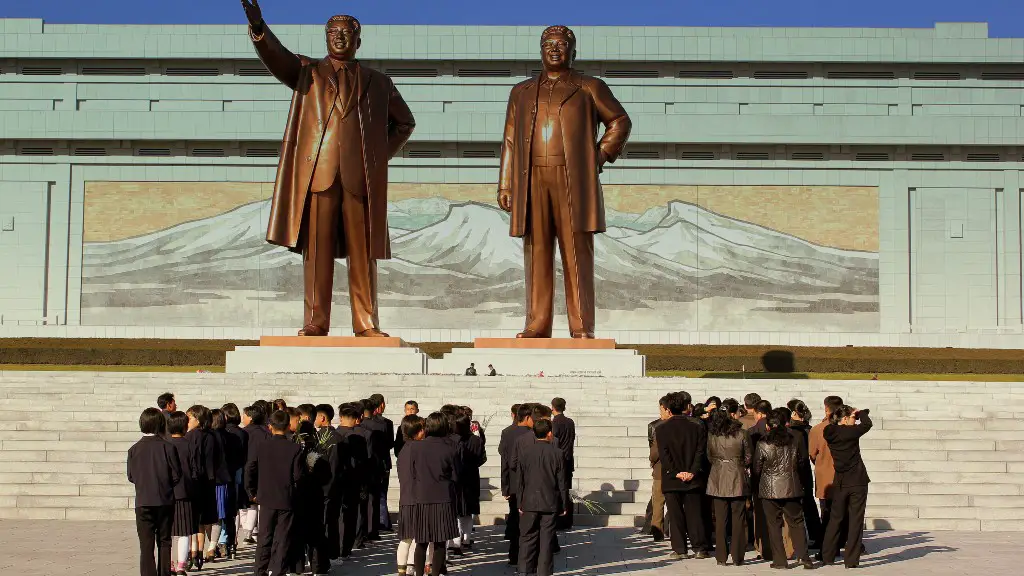Is North Korea Connected To The Internet?
It is a perplexing and much-debated question as to whether North Korea is connected to the Internet or not. The country is shrouded in mystery and its leaders have imposed incredible amounts of secrecy and control over its citizens, making it difficult to determine what is happening inside the borders. It is widely accepted that North Korea does have access to the Internet, but just how that access works, the extent of its capabilities, and what it does with it remains largely unknown.
At first glance, it may seem that North Korea is disconnected from the world wide web; however, this is not entirely true. In reality, select institutions, elites, and other high-ranking officials are in fact connected to limited parts of the internet, and to a domestic intranet known as Kwangmyong, which is only accessible within North Korea itself. This network provides access to chat rooms, email, and even the ability to play video games. Reports have also surfaced that some North Koreans even have access to the global internet, although it remains heavily restricted by the government.
In addition to its intranet and limited access to global net, North Korea is also thought to have an active presence on social media. For example, Pyongyang has a Twitter account as well as accounts on Facebook and Tumblr. It is unclear how exactly these accounts are maintained , but it appears that the content is closely monitored and produced by the governing bodies. In addition to its online presence, North Korea also has its own take on the “world wide web” by providing its citizens restricted access to an online encyclopedia called “The National Encyclopedia of Korea”. This encyclopedia serves much the same purpose as a traditional encyclopedia, providing factual content from North Korea’s official view points.
The government of North Korea monitors and strictly controls access to the internet and this is done by only placing selected individuals on approved lists with approved access. This is accomplished through the extensive censorship of all external websites, data, e-mail, and communication, making it extremely difficult for ordinary citizens to access the web. At the same time, the government appears to operate its own cyber-warfare unit to launch attacks on their perceived enemies. Reports suggest that North Korea has conducted extensive cyber-attacks against South Korea, the United States, and other countries, likely in an effort to gain access to and manipulation sensitive information.
Though North Korea does have restricted access to the internet, the country remains a mystery when it comes to understanding its uses and capabilities online. It is possible that the country is using the internet for cyber-espionage or to launch attacks on its perceived enemies, but it is also possible that the country is using the internet for more legitimate reasons such as education or commerce. Nonetheless, North Korea’s internet capabilities and what it does with them remain a mystery.
Limitations of North Korea’s Internet
North Korea does have access to the internet and other online mediums, but it is important to note the limitations of this access. For example, the country is unable to use the more popular search engines such as Google or Yahoo because they are all blocked by the government. Additionally, the government has also heavily censored what information is made available on the web and they actively monitor and control what content North Koreans are able to access.
In addition to limiting access, the government has also been accused of using the internet to launch malicious cyber-attacks on its perceived enemies. In particular, reports have surfaced indicating North Korea has attacked South Korea and the United States by using malware, phishing attacks, ransomware, and other malicious tactics. These cyber-attacks have likely been used to gain access to sensitive information, manipulate data, and cause disruption in these countries.
Finally, it is important to note that the internet is not only used as a means of attacking other countries, it is also used as a tool of censorship and control within North Korea. The government heavily monitors and controls what information is made available to its citizens and they are very restrictive on who is able to access the web. By controlling who is able to access the internet, the government can more effectively maintain its power over its citizens.
Opinions Of Experts On North Korea’s Internet
Experts on North Korea have varying opinions on the country’s access to the internet. Some say the country is using the internet to launch malicious cyber-attacks on its enemies, while others argue that the country is using the web for legitimate purposes such as education and commerce. Another potential use of the internet within North Korea is as a means of controlling its citizens. Some experts say that North Korea is using the internet as a tool of censorship and propaganda, while others argue that it is being used to provide North Koreans with access to factual and unbiased information.
One thing that the experts seem to agree on is that North Korea’s access to the internet is limited and highly restricted by the government. It is not likely that the average North Korean citizen has access to the global internet, and the content they are able to access is heavily censored and monitored by the government. Additionally, the experts agree that North Korea likely has an active cyber-warfare unit and has conducted numerous cyber-attacks against other countries in an effort to gain access to and manipulate sensitive information.
Potential Implications Of North Korea’s Internet
It is unclear what implications North Korea’s access to the internet may have for the rest of the world. On one hand, the country has undoubtedly used the internet to launch cyber-attacks against other countries, but it is also possible that North Korea is using the web for legitimate purposes such as education and commerce. Additionally, it is important to note that the internet within North Korea is heavily censored and monitored by the government, making it highly unlikely that North Koreans are gaining access to factual information or unbiased news.
One of the most concerning implications of North Korea’s internet access is the potential for cyber-espionage. North Korea has the ability and resources to launch cyber-attacks on other countries in an effort to gain access to and manipulate sensitive information. This could have implications for the security of other countries by allowing the North Korean government to gain access to confidential information and potentially even manipulate financial and military data.
Finally, it is also important to note that North Korea has a presence on social media. While the government actively monitors and censors this content, it is still a potential platform for North Korean citizens to gain access to information from outside the country and to communicate with people in other parts of the world. This could potentially give North Korean citizens a greater awareness of events in other countries and help to create a more informed and open society.
The Future of North Korea’s internet
When considering the future of North Korea’s internet, it is important to note that the government’s control over technology and the web is unlikely to lessen anytime soon. The country’s tightly-controlled network and censorship of the web is likely to remain constant and further restricts the ability of North Korean citizens to access global information. Additionally, North Korea is likely to continue to use its cyber-warfare unit to launch malicious cyber-attacks against its enemies for the foreseeable future.
However, it is also possible that North Korea could start to use the internet for more economically and socially beneficial reasons in the future. For example, the government could potentially open up access to the internet for educational and commercial purposes. If this were to happen, North Korean citizens could potentially gain access to factual information and unbiased news, as well as potential become more informed about international politics.
Finally, it is possible that North Korea could start to use social media more liberally in the future. This would potentially give North Koreans the ability to access information and to communicate with people in other parts of the world, potentially leading to greater understanding between countries and lessening the tensions between North Korea and its perceived enemies.
Conclusion
North Korea does indeed have a presence on the internet, but the extent of its capabilities and uses remains largely unknown. Select individuals and institutions are connected to the networks, and the country is believed to operate its own cyber-warfare unit for the purpose of launching attacks on its enemies. Additionally, North Korea also has its own take on the “world wide web” and utilizes it to spread propaganda and as a tool of censorship. However, the future of North Korea’s internet remains uncertain and it is unclear whether the government will open up access to the web or further restrict the flow of information.




